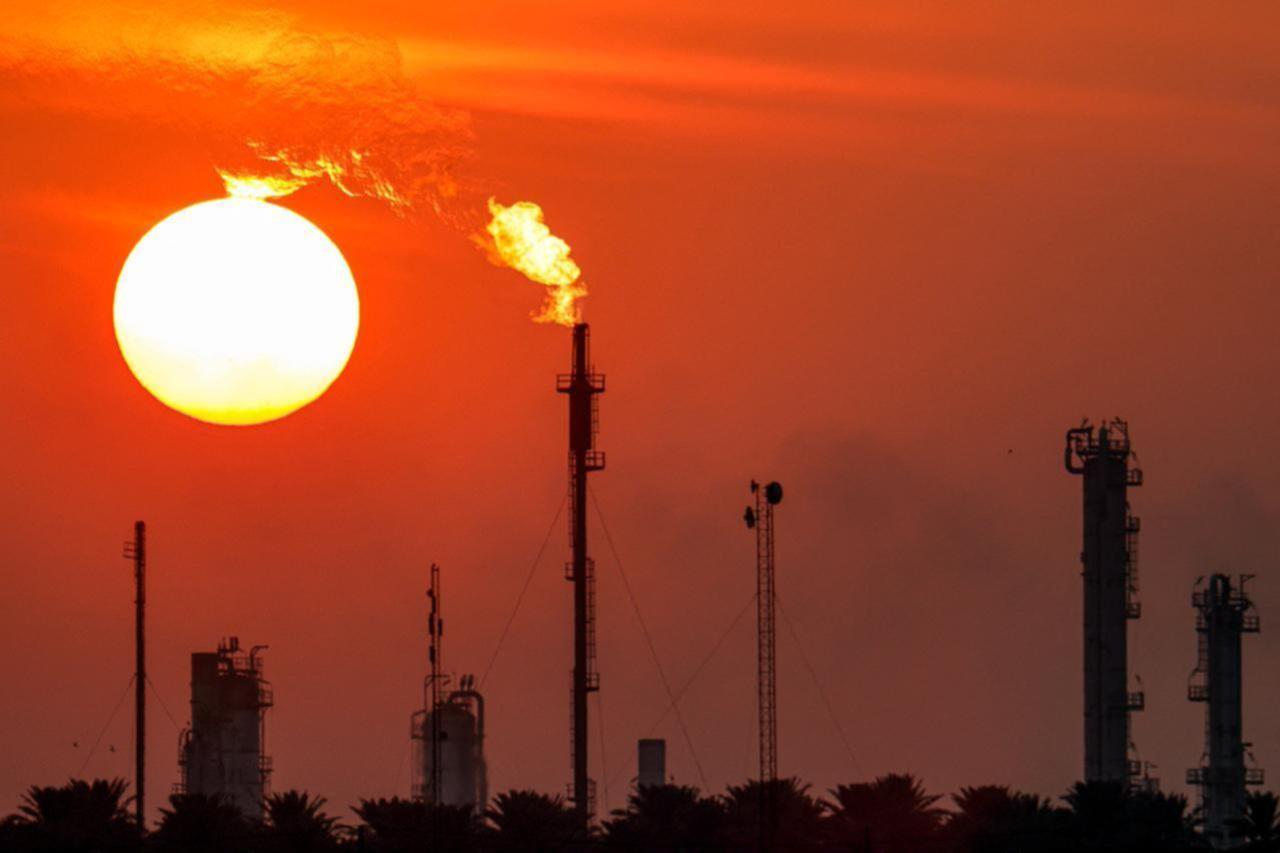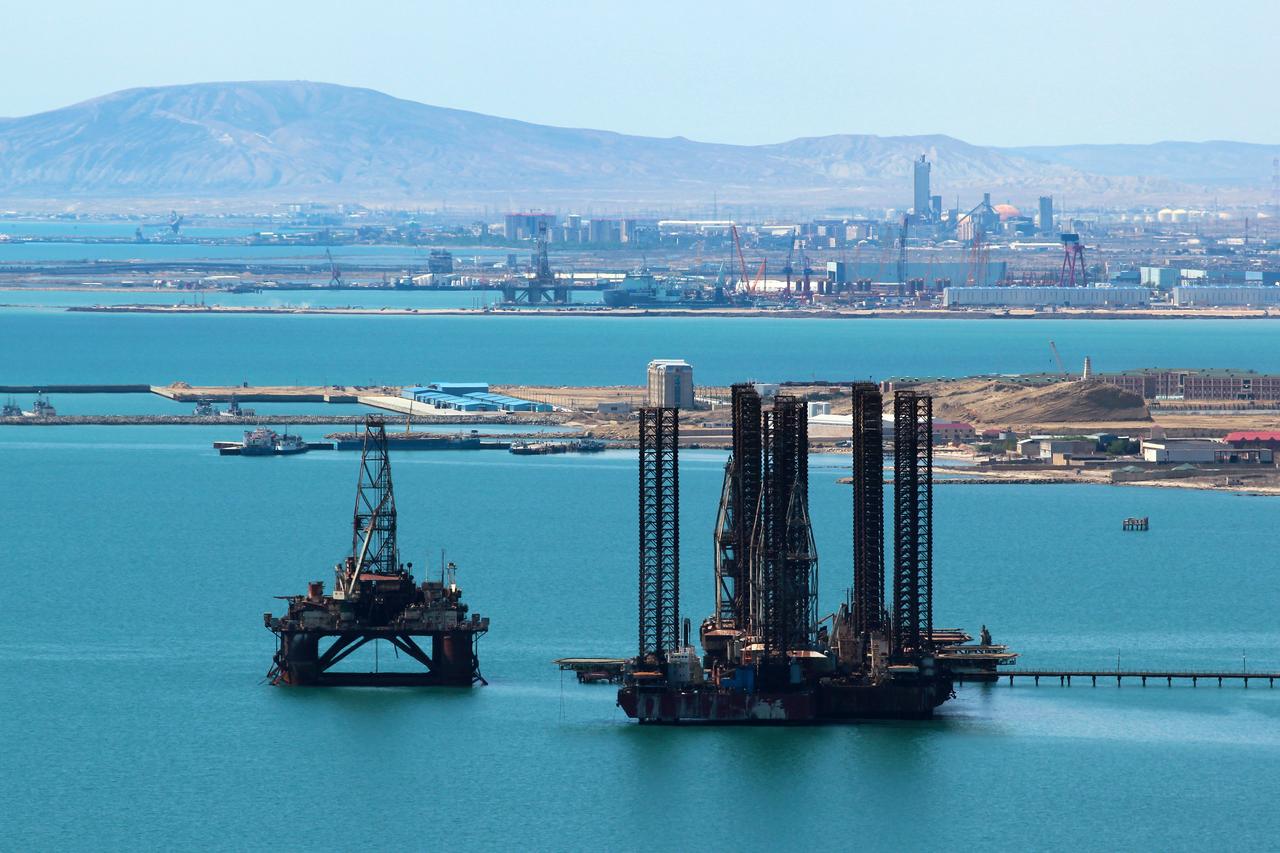
Energy arteries stretching from the Caspian Sea through Türkiye to Europe are increasingly serving as a linchpin for Europe's energy security. Among these, the Baku-Tbilisi-Ceyhan (BTC) pipeline holds a central position on the global energy map, serving as the primary conduit for Azerbaijani crude oil flowing to Europe.
Its operational security underpins the energy independence and strategic positioning of multiple European nations.
Recent reports have set alarm bells ringing across energy and diplomatic circles. Romania’s G4Media reported allegations that Russia deliberately contaminated Azerbaijani oil shipments with high concentrations of chlorine, targeting the BTC pipeline.
Experts warn that, if confirmed, such interference could have incapacitated Romania’s Petrobrazi refinery and triggered cascading disruptions across the regional energy market, potentially sparking a broader European energy crisis.
This is far from a simple technical disruption. Energy analysts stress that these acts represent a high-stakes geopolitical strategy. In 2024, SOCAR facilities in Ukraine were attacked, highlighting the vulnerability of energy infrastructure in conflict-prone regions.
The recent SOCAR attack in Odessa on Aug. 7–8, 2025, cannot be considered coincidental. According to analysts, this strike, along with the allegations of Romanian contamination, illustrates Russia’s use of hybrid tactics to assert power in the energy sector and send strategic signals to the region.
Türkiye’s strategic geography places it at the center of these developments. The BTC pipeline links the Caspian Sea to Europe through Türkiye’s territory, and its security is inseparable from Türkiye’s role as a regional energy and diplomatic hub.
Any disruption along this corridor threatens not only physical infrastructure but also bilateral relations, regional cooperation, and broader European energy stability.
Historically, the BTC pipeline has been more than a commercial venture. Completed in 2005, it was designed to carry Azerbaijani oil directly to Europe, reducing the continent’s dependence on Russian and Iranian energy supplies. Similar strategic thinking is reflected in later projects, including the Southern Gas Corridor and the Trans-Anatolian Natural Gas Pipeline (TANAP).
Yet Russia continues to assert influence, as seen in both the SOCAR attack and the chlorine allegations. These events underline that energy corridors remain a key lever in regional power dynamics.

Historically, the BTC pipeline has been more than a commercial venture. Completed in 2005, it was designed to carry Azerbaijani oil directly to Europe, reducing the continent’s dependence on Russian and Iranian energy supplies.
Similar strategic thinking is reflected in later projects, including the Southern Gas Corridor and the TANAP.
Yet Russia continues to assert influence, as seen in both the SOCAR attack and the chlorine allegations. These events underline that energy corridors remain a key lever in regional power dynamics and emphasize Türkiye’s centrality as a transit and diplomatic hub.
In an interview with Türkiye Today, Merve Suna Ozel Ozcan, an associate professor from Kirikkale University, elaborated on the geopolitical ramifications of these developments.
“The attack on SOCAR’s Odessa depot on Aug. 7–8, 2025, and the reports of tampering with Azerbaijani oil shipments to Romania are not coincidental."
"These are part of a calculated pattern in which Russia is employing hybrid warfare methods to exert pressure in the energy domain. By targeting vital infrastructure and signaling potential disruption, Moscow is sending a clear message about its continuing influence in the region,” she said.
She emphasized Türkiye’s pivotal position, saying that Ankara’s role as a transit country is critical.
"The BTC pipeline, culminating at the Ceyhan terminal, serves as the main conduit for Europe-bound energy shipments. Along with the Zangezur and Middle Corridor initiatives, Türkiye is positioned to become a central energy hub in the region."
"This role enhances Türkiye’s strategic leverage and underscores the importance of securing these corridors—not just physically, but also diplomatically, to ensure stability in bilateral and regional relations,” Ozcan elaborated.
On the other hand, she noted that after the Russia–Ukraine war, European countries began actively seeking alternatives to Russian energy, including Azerbaijani oil and gas, and that Türkiye’s strategic location placed it at the center of these alternative supply routes.
She added that hybrid warfare was now directly targeting these corridors, marking a new stage in geopolitical confrontation where energy security, regional stability and diplomacy were closely intertwined.
In the historical context, Ozcan explained that Russia has long used energy as a political instrument. The 2005–2006 energy cutoff in Ukraine and the ripple effects across Europe demonstrated how energy can be weaponized.
"Today, the stakes are broader and more complex. Shifts in the Caucasus and Türkiye’s growing influence through projects like BTC and TANAP challenge Russia’s traditional dominance under its ‘near abroad doctrine,” she added.

She also highlighted recent diplomatic developments, saying: “Russia’s silence over Azerbaijan and Armenia’s recent U.S. visits is notable. The cordial interactions between Presidents Aliyev and Pashinyan with Donald Trump signal hope for peace, yet a full resolution has not been achieved. Amending Armenia’s constitution to remove references to Azerbaijani territory remains essential. U.S. involvement is critical not only for regional stability but also within a broader strategy to balance Iran, Russia and China.”
Addressing hybrid threats directly, she explained: “The timing of the SOCAR Odessa depot attack and the Romanian contamination reports indicates a deliberate effort to project power and test regional responses. These are not isolated incidents; they are interconnected signals within a broader pattern of energy diplomacy and coercion.”
She stressed Türkiye’s role as a stabilizing force, saying that the country's engagement in the Russia–Ukraine corridor, as well as its leadership regarding the Zangezur Corridor, is essential for conflict resolution.
"Regional actors must coordinate with Türkiye to implement sustainable solutions that integrate political, economic, and security considerations. Türkiye’s active involvement strengthens the prospects for lasting stability,” she maintained.
Finally, she connected these strategic concerns to concrete economic initiatives.
“In late July, Kazakh President Kassym-Jomart Tokayev and President Recep Tayyip Erdogan met to discuss increasing Kazakh oil exports via BTC. Türkiye is demonstrating a strong commitment to strengthening regional energy cooperation and addressing systemic energy needs."
"This is not merely an economic move but a strategic step to consolidate Türkiye’s centrality in regional energy security,” Ozcan said.
Analysts warn that even minor disruptions along these corridors could trigger price volatility, supply shortages and geopolitical tensions. The BTC pipeline, SOCAR assets and related infrastructure represent not just energy transit points but geopolitical flashpoints where hybrid warfare, strategic messaging and diplomacy intersect.